Indie poker roguelike Balatro tops 2 million copies sold | News-in-brief
This is a News-in-brief article, our short format linking to an official source for more information. Read more about this story by following the link below:
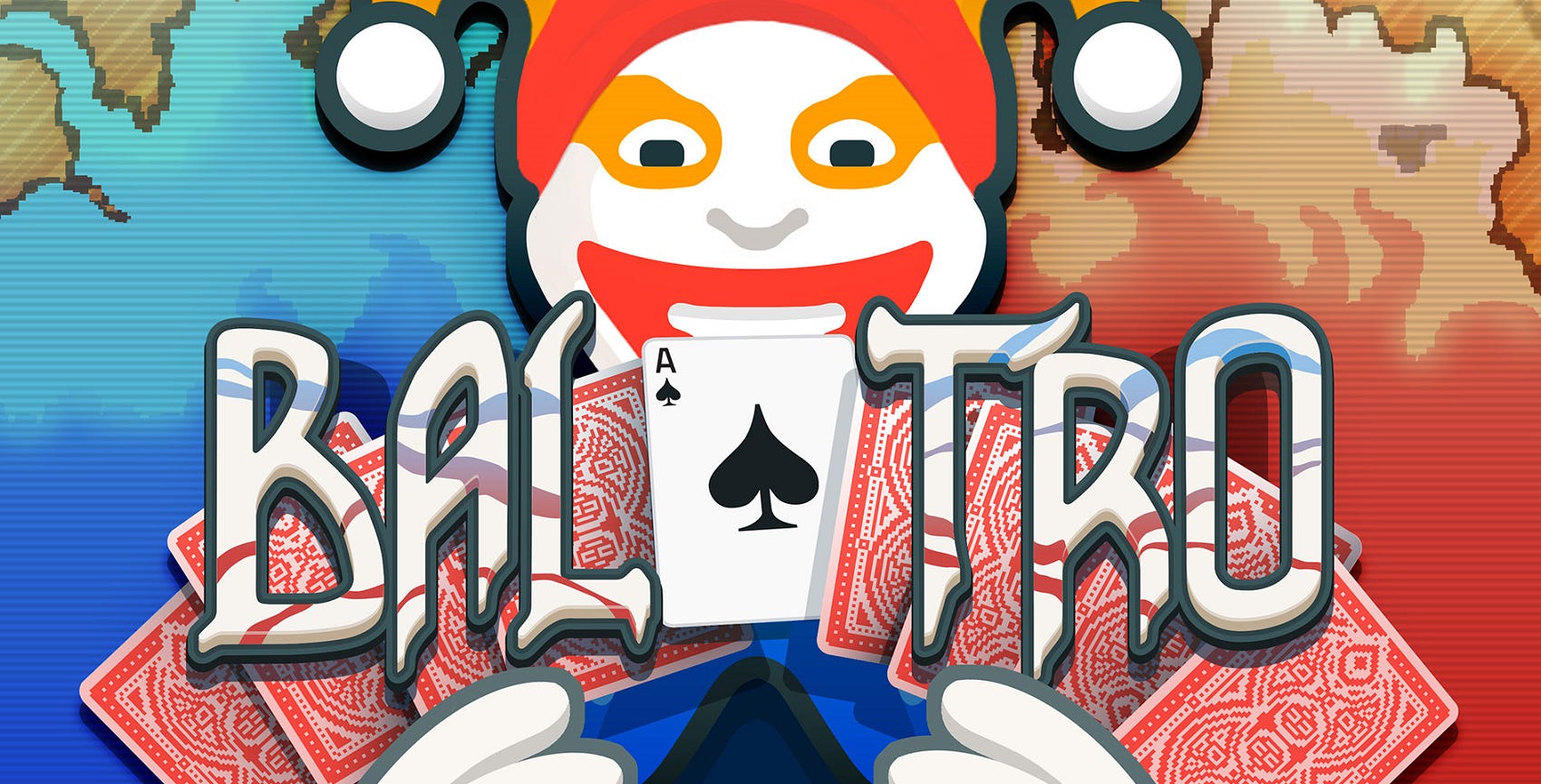
This is a News-in-brief article, our short format linking to an official source for more information. Read more about this story by following the link below:
.png?width=1920&height=1920&fit=bounds&quality=80&format=jpg&auto=webp)
Balatro is the latest thing that can seemingly run the seminal 90s shooter Doom.
"Literally nobody asked for it, but here it is: Doom on Balatro," announced u/UwUDev on reddit, appending a video that proves they've somehow embedded Zoom into the poker game's Joker collection screen.
"Honestly, I didn't think anyone would care. I'd just done it for fun/challenge, but since the community seems to like it, I'm planning something even more impressive and stupid," UwuDev said.
.png?width=1920&height=1920&fit=bounds&quality=80&format=jpg&auto=webp)
Balatro is the latest thing that can seemingly run the seminal 90s shooter Doom.
"Literally nobody asked for it, but here it is: Doom on Balatro," announced u/UwUDev on reddit, appending a video that proves they've somehow embedded Zoom into the poker game's Joker collection screen.
"Honestly, I didn't think anyone would care. I'd just done it for fun/challenge, but since the community seems to like it, I'm planning something even more impressive and stupid," UwuDev said.
.png?width=1920&height=1920&fit=bounds&quality=80&format=jpg&auto=webp)
Balatro is getting a physical edition.
The creator of the viral Poker game, localthunk, confirmed via a note posted to the social media platform X, formerly known as Twitter, that fans will soon be able to pick up a physical copy of the game on PS5, Switch, Xbox Series X/S, and last-gen consoles.
As an extra sweetener, each "special edition" will come with a pack of 10 bonus Joker/booster cards.
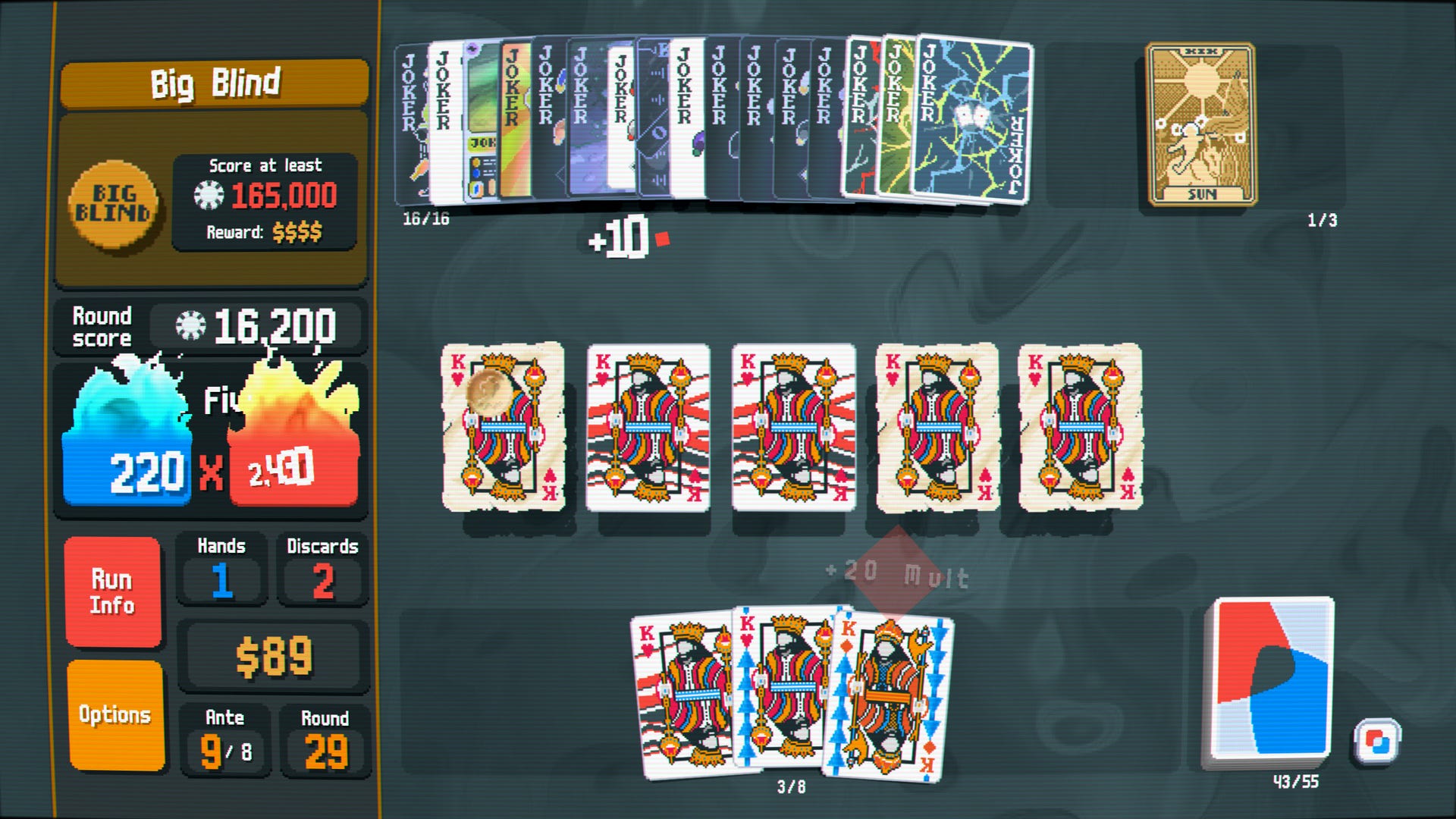
While trying to keep vaguely up on both games discourse and terminology over long periods of time, I frequently find myself noticing terms enter common usage, get used a bunch, then fall out of favour again. I think this is partly because games discourse is cyclical, and partly because writing and talking about the same things a lot means that when a neater phrase for something complicated pops up, it gets assimilated quickly. Mostly, though, I think it’s because of my brain doing the thing where, say, you notice a yellow car on a walk and then see dozens of them. I was going to write a car make there but I don’t know any. Uh, (looks at monitor), Asus? Do Asus do cars? The 1994 Asus Gremlin. What a ride!
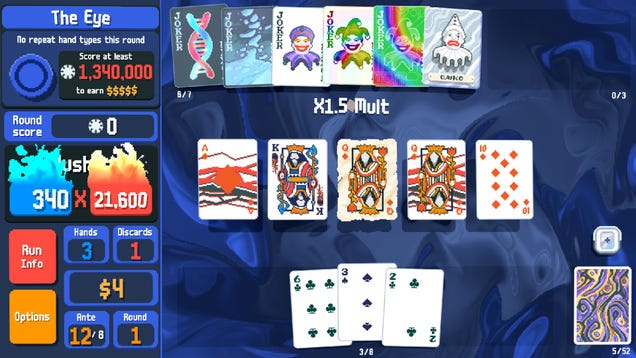
Balatro was recently in the news after some versions of the game were removed from digital stores due to a ratings kerfuffle that is still ongoing. However, that setback hasn’t stopped the popular roguelike deck-builder from selling more than 500,000 copies across all platforms in under two weeks.
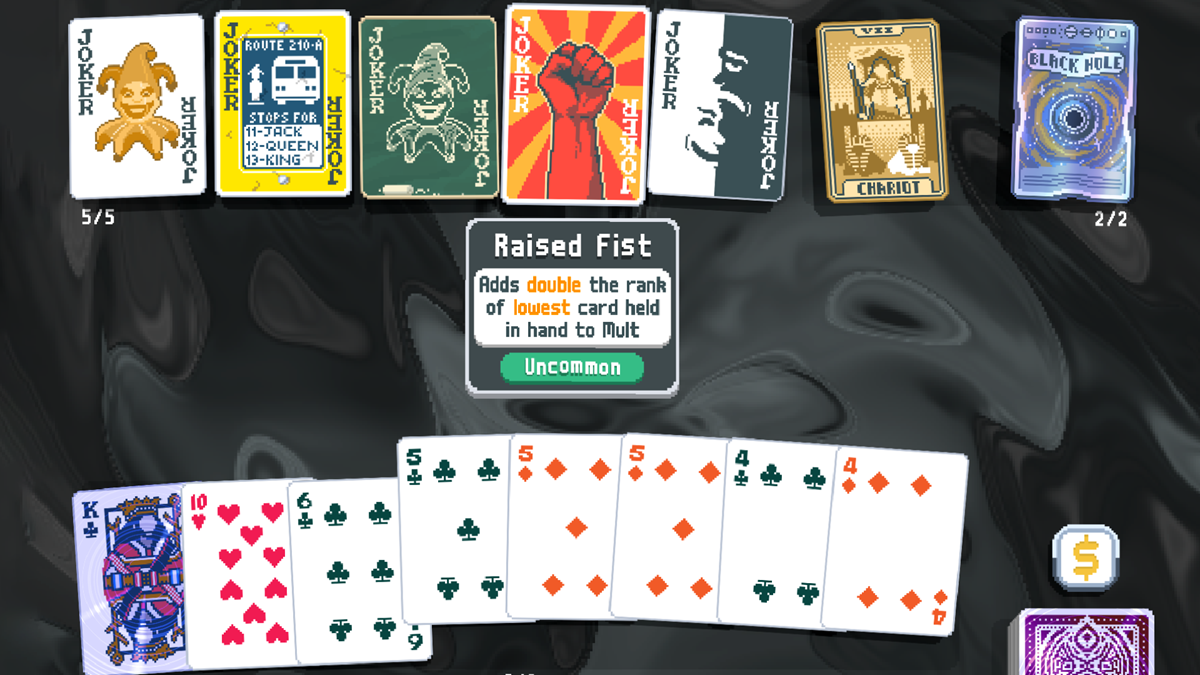
![]()
Playstack, the publisher of popular roguelike deckbuilder Balatro confirmed on Twitter that the game has been temporarily removed from some digital storefronts due to a sudden rating change. Apparently, the UK rating board PEGI changed the rating from 3+ to 18+ overnight due to "prominent gambling imagery" which prompted the sudden delistings. The problem here is that there is literally no gambling in Balatro.
According to Playstack, they specifically addressed this topic with PEGI back in October after it was originally rated 18+. And, after some communication, PEGI changed the rating to 3+. PEGI even went as far as to assure Playstack that "we have reviewed your product and determined that the disclosure of gambling themes was unwarranted." Playstack says that the content in Balatro has not changed since that discourse took place, so it doesn't make much sense.
The solo developer of Balatro, LocalThunk, also responded to the rating board issue.
"I do not condone gambling (staking something personally valuable on an uncertain event) nor do I believe that Balatro contains gambling. I did add risk/reward mechanics and RNG to Balatro, but these are core mechanics to the genre at large."
- LocalThunk, Solo Developer of Balatro
One platform not affected by this travesty is Steam, which does not carry any sort of age rating based on rating boards.
I haven't had a chance to play just yet simply due to lack of free time at the moment, but our own Eric "The Cardmaster" Van Allen can attest that even a cursory five minutes in the world of Balatro makes it clear: this is not a game about gambling, whatsoever. This seems like a classic case of someone just glancing at a screenshot from Balatro and seeing that standard card decks are used, and there is a currency, and automatically associating it with gambling. Not a good look, PEGI.
Balatro, which has no gambling mechanics whatsoever, is currently available on PC via Steam, as well as PlayStation 4, PlayStation 5, Xbox One, Xbox Series X|S, and Nintendo Switch depending on your region.
The post Poker deckbuilder Balatro is dealing with ratings board frustrations and delistings appeared first on Destructoid.
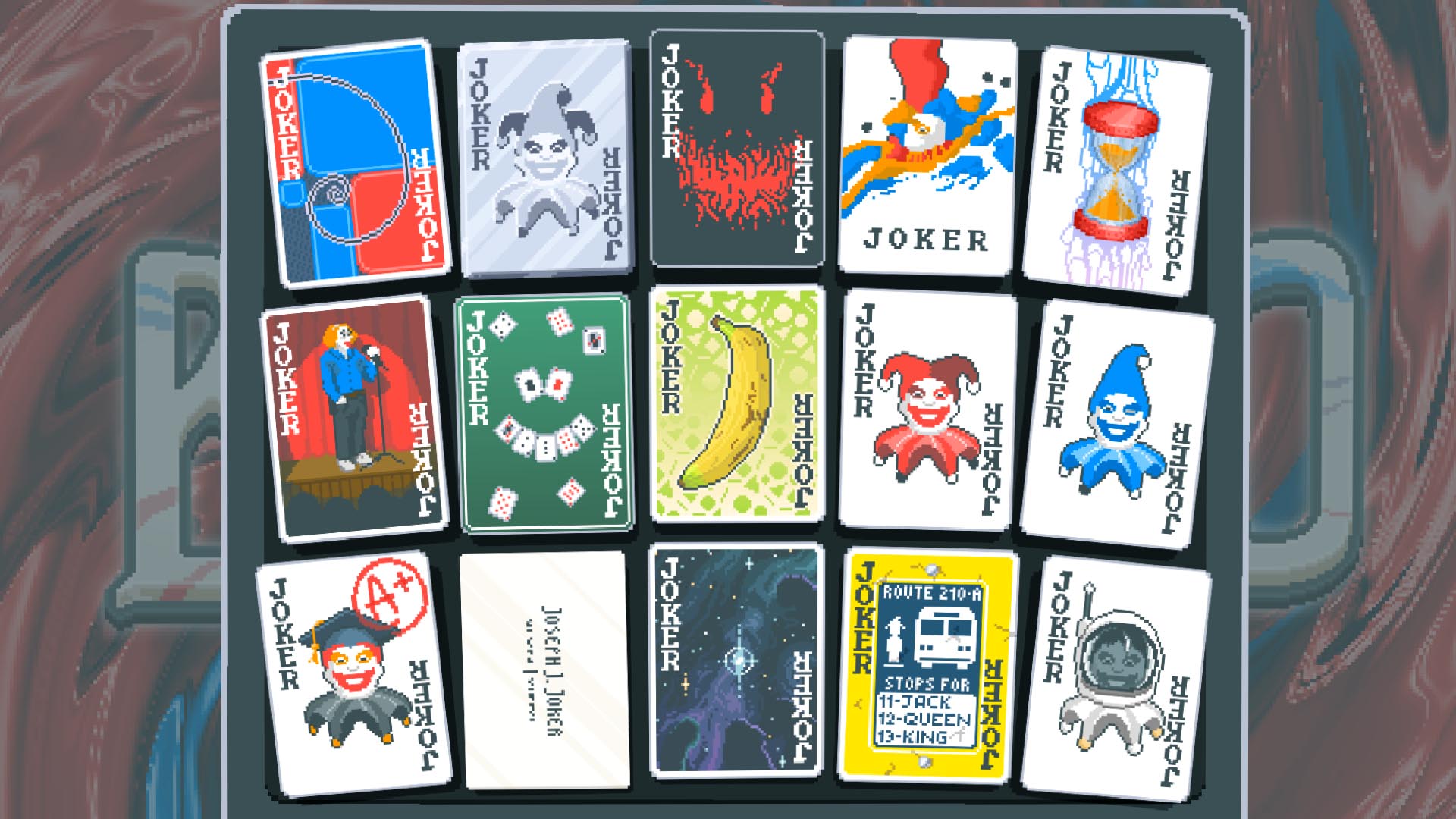
When I first heard about Balatro (out now on Xbox Series X|S and Xbox One), I wondered how you could make a roguelike deckbuilder – a genre already stacked with greats like Slay the Spire, Monster Train, Inscryption, Hand of Fate, and more – using only poker as an inspiration. After accidentally playing 15 hours of Balatro in only a few short days, I’ve come to realize that this isn’t about playing poker, it’s about breaking poker – and it’s incredible.
Balatro has a simple premise – every poker hand is assigned a points score, and a multiplier for that score. You’re dealt a hand, offered the chance to discard up to five cards at a time, and then try to find the best possible way to hit the highest points total. There are no opponents, per se, just higher and higher points totals you’re tasked with beating (although there are “boss levels” that introduce extra, often painful, mechanics to work around). It’s a simple, elegant set-up. But the ways you can go beyond that set up are anything but simple.
Between each round, you can purchase new cards and abilities from an in-game shop, using money earned by playing each round efficiently, or stylishly. The key to understanding Balatro is to realise that everything you can add to your deck isn’t a way to cheat as such, but a means of literally changing how poker works. The most obvious of these tools comes in the form of Jokers, cards that live separately from your deck, and offer 150 different ways to change how your other cards react – from buffing certain suits, to earning you more money to spend, to truly wild abilities I won’t spoil.
But beyond Jokers there are ways to add extra abilities to your deck as a whole, enhance the potency of certain hand types, add extra cards to your line-up, remove or change suits, and much, much more. It’s overwhelming at first, but as you begin to understand how many variables there are, and how they interact, you start to realise that the game of poker, in Balatro‘s hands, is a mutable, mercurial thing.
I’ve built decks where a simple pair is more powerful than a straight flush. I’ve built decks that mean straights no longer work the way they should, and allow me to create wild combos more frequently. I’ve built decks where I’ve experimented and discovered that there are valid poker hands here that don’t even exist in the real-life game – five of a kind, anyone?
I’ve discovered a new way to play Balatro on every single run I’ve played, quite literally –and I’ve played a lot. This isn’t a game about working within the rules to succeed, it’s about changing the rules to help you redefine what success is. I’ve already hit point scores I didn’t necessarily think were possible when I started playing – and, looking in the unlocks menu, I’ve realised that there are point scores that still feel baffling this far into my time with the game.
Speaking of unlocks, this is where Balatro offers you a meaningful sense of progression. Every new run is a total reset – you can’t keep abilities or receive passive upgrades, but hitting (often very specific) targets will unlock new cards for you to use in future runs. I’m now looking through menus between each run, working out what bizarre goal I want to hit next – a run where I somehow have 30 club cards in my deck? Let’s give it a try.
Perhaps my biggest reservation going into Balatro is that there was no story to anchor this all to – I’ve loved roguelike deckbuilders’ many approaches to slowly but surely offering up a narrative through what amount to simple games of cards. But I’ve come to realise that part of the beauty here is that this game swaps story for atmosphere.
There’s a digital spookiness at work, from the faux-CRT scanlines across the screen, to its heavy reliance on tarot imagery, to the general sense that something is broken about all of this – like we’re playing a virtual poker machine in some haunted casino. I’ll never truly know what’s going on beyond my newest deck’s abilities, and that feels like the point.
Balatro already feels like a game to file alongside the pinnacles of the genre, and I know I’ve only seen a portion of what it has to offer. I can’t wait to see where the cards take me next.
Balatro is out now on Xbox Series X|S and Xbox One.
The post Balatro Wants You to Play Poker – and Then Break It Apart appeared first on Xbox Wire.
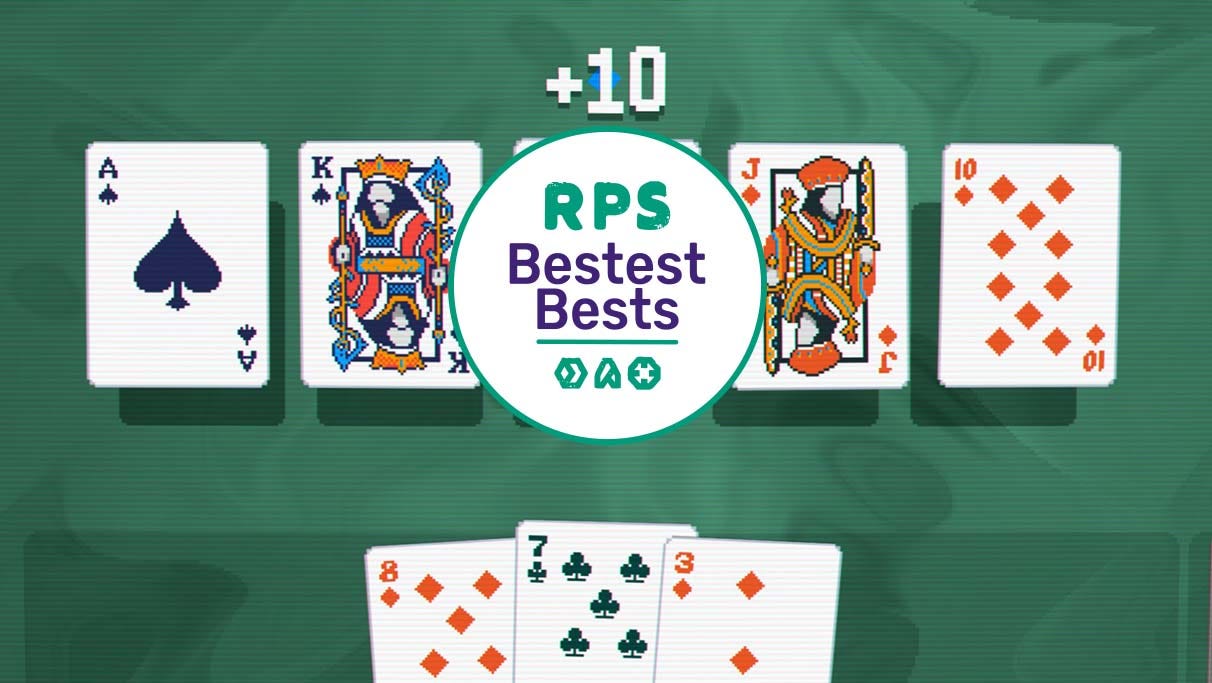
There's a particular boss encounter in Balatro that always feels like it's cheating a bit. In this mesmerising poker roguelike, each stage is made up of three blinds - small, big and boss - with the blind essentially being a high score you have to hit by playing different kinds of poker hands - your traditional flushes, straights, pairs and so on. Each hand has its own number of chips and multiplier bonuses associated with it, and Balatro's whole deal is about shuffling closer to victory by making the most of the cards you're dealt. While some blinds are tiny, stretching to just 300 or 450 early on in a run, they quickly start ramping up into the tens of thousands as each successfully defeated boss blind ups the ante and the accompanying stakes. Reach an ante of eight, and bingo, you've won a run of Balatro.
The boss blind I keep coming a cropper with, though, is The Flint. This sucker not only halves a hand's chip score, but it also cuts its multiplier in two as well, and I've yet to figure out exactly how to defeat it. Sometimes it appears with a blind of just 600, but other times it's been an enormous 22,000. In fairness, all bosses have little tricks like this. Some will debuff certain card suites, making them useless in your overall score count. Others may only let you play one hand type the entire match, while the cheeky Tooth will deduct you $1 for every card used. But Balatro isn't simply about beating the odds with smart and intelligent card plays. It's about bending, twisting and abusing those odds to your will - also through smart and intelligent card plays. Cheating isn't just encouraged in Balatro. It's damn near mandatory, and it's all thanks to the brilliantly conceived joker cards that give the game its Latin-based name.
